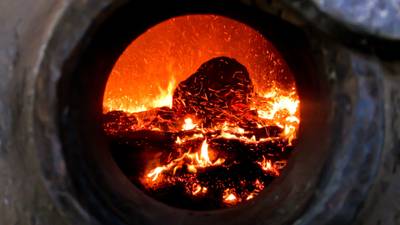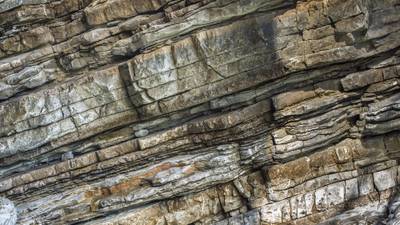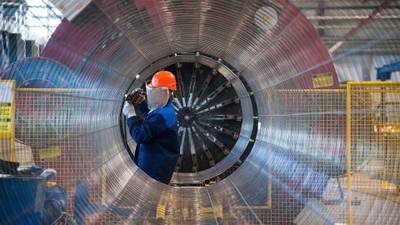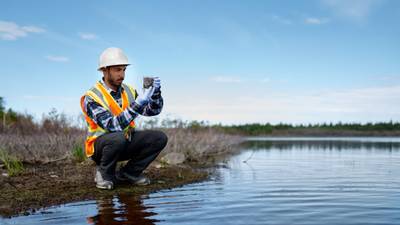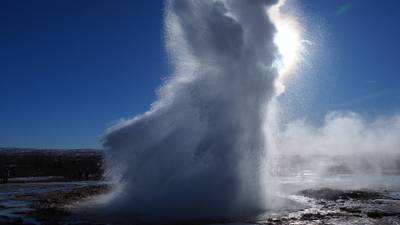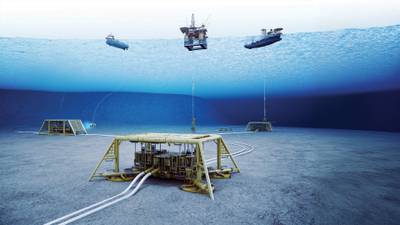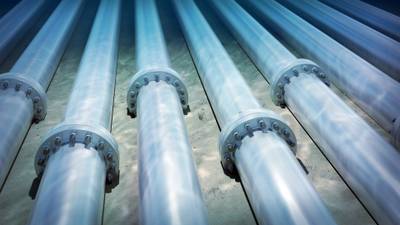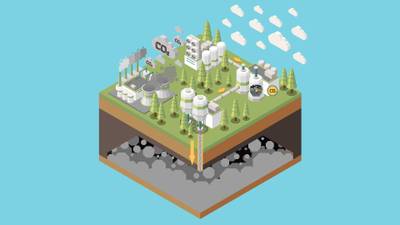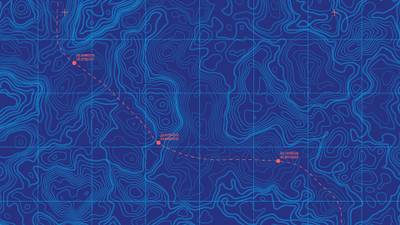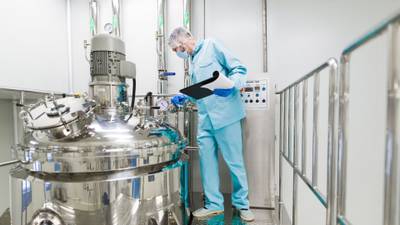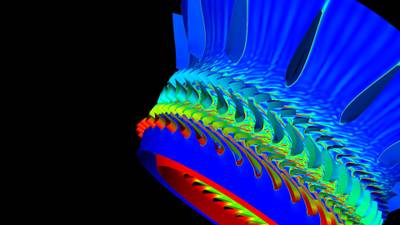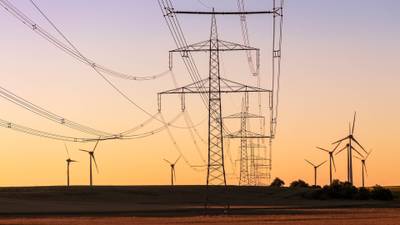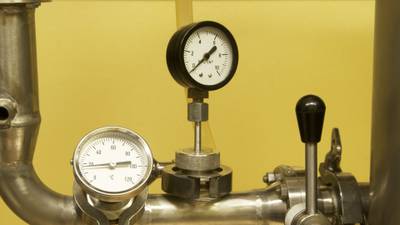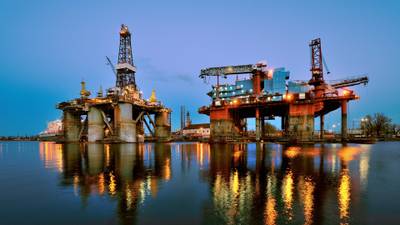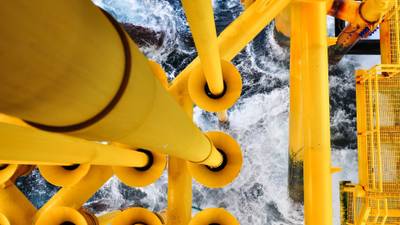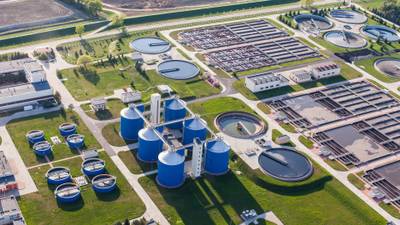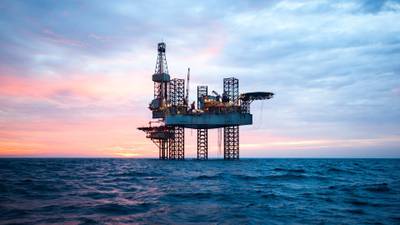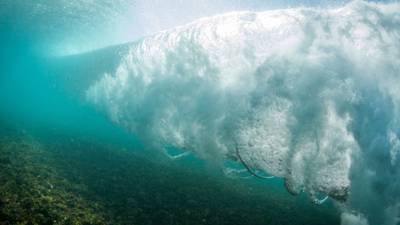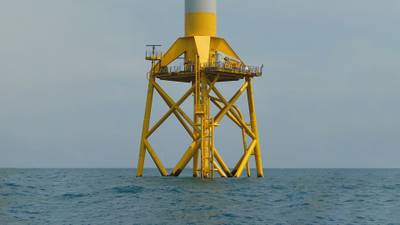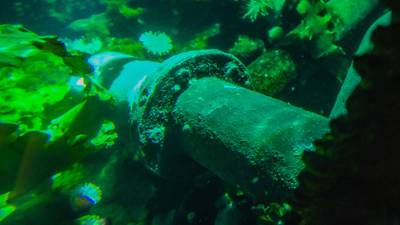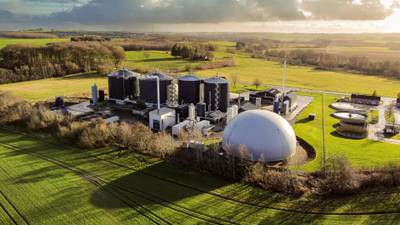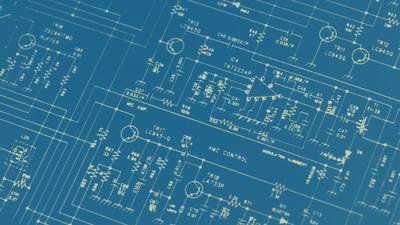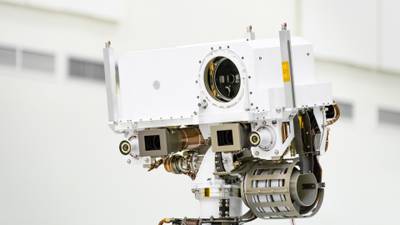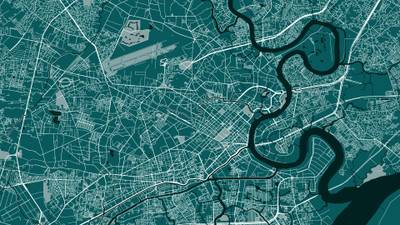Join an enhanced oil recovery course you can study flexibly online.
In this Masters-level online short course, you’ll learn about different methods of enhanced oil recovery (EOR).
With expert guidance, you’ll learn to develop, acquire, and safely integrate enhanced oil recovery technologies into field-development plans and field operations.
We’ll look at how EOR methods work, and the fundamental concepts and theory behind them.
Throughout the course, we’ll examine real-life examples of EOR operations to help illustrate EOR techniques and concepts.
Who can join this enhanced oil recovery course?
This distance-learning course is for engineering graduates, particularly those with a background in petroleum, chemical, or civil engineering.
It’s particularly valuable learning for:
- graduates with a background in petroleum engineering
- petroleum engineers in the oil and gas sector looking to improve their theoretical understanding of EOR, and
- academics in universities around the world interested in developing courses in EOR or petroleum engineering.
Reservoir engineering knowledge
The course assumes some knowledge of reservoir engineering. If you do not have this prior knowledge, we recommend taking our online Reservoir Engineering short course first.

Build credits towards an accredited Masters degree
This online course is part of our Energy Institute-accredited:
You can use the credits you earn with this short course towards this MSc qualification.
What you’ll study
With growing demand for energy, there is a need to maximise the production of oil and gas, especially from depleting reservoirs.
In this course, you’ll examine the methods and processes of enhanced recovery of oil and gas.
You’ll also learn to integrate enhanced oil recovery technologies into field development plan and field operations.
You’ll cover topics including:
EOR overview
- what is enhanced oil recovery?
- review of two-phase flow in porous media, basics of phase behaviour
- microscopic displacement efficiency, sweep efficiency, and factors that affect them
- ternary phase diagrams.
Miscible gas injection
- first and multiple-contact miscibility
- vaporising and condensing gas drives
- mechanisms of recovery enhancement
- screening considerations and case studies
- water alternating gas (WAG).
Chemical flooding
- forces in pore spaces (viscous, capillary, and gravity forces)
- their 1D equations and derivations
- fractional flow analysis and calculations
- mobility concept
- microemulsions.
Thermal methods
- different types of thermal methods
- the reasons for using them
- the mechanisms involved
- efficiency calculations
- kinetics of the reactions.
By the end of this course, you’ll be able to...
-
Describe factors that affect pore-scale displacement efficiency and sweep efficiency.
-
Describe the mechanisms underlying established EOR methods.
-
Quantitatively characterise interfacial, viscous, and capillary forces and their relative importance.
-
Use ternary phase diagrams to predict miscibility conditions for a gas injection scheme.
-
Use fractional flow curves to predict the speeds of the solvent front and water front for a secondary WAG scheme under idealised conditions.
-
Use fractional flow curves to calculate the displacement performance of a chemical flood.
-
Use simple analytical methods to assess the efficiency of thermal methods.
-
Analyse and design polymer flows in a 1D system.
Choose the University of Aberdeen for online EOR courses

Earn as you learn
We fit around full-time work, so you can build qualifications while you keep earning a salary.

You’re in expert hands
We’ve been training world-class engineers for over 100 years and delivering online learning for decades.

20% alumni discount
University of Aberdeen alumni get 20% off fees for this online course.
How you’ll study
Online learning
This distance-learning enhanced oil recovery course is delivered flexibly, 100% online.
You can learn with us anywhere in the world, no student visa required, and manage your study hours to suit you.
Your teaching
This course is taught at Masters level.
Teaching is delivered through MyAberdeen, our online Virtual Learning Environment (VLE). It holds all the materials, tools and support you’ll need in your studies. Take a look around MyAberdeen.
You can access your learning materials on computer, smartphone and laptop, 24 hours a day. You’ll find a range of resources available, including:
- pre-recorded video lectures
- lecture slides
- reading materials
- discussion boards with your tutors and peers
- the online resources of our award-winning Sir Duncan Rice Library.
Your tutors
This course is delivered by our School of Engineering.
You’ll learn from academic staff who are active researchers in the subsurface energy area.
Industry input
This course is part of our accredited MSc in Petroleum Engineering, which has its content shaped by an Industrial Advisory Board of representatives of companies in the petroleum sector.
This course is assessed online.
You’ll be assessed throughout your studies via:
- your coursework, including a lab report (worth 20% of your final course grade), and
- an online written exam (80%).
The course totals approximately 150 hours of study and assessment time. That’s around 10 – 15 hours per week.
This is an indicative guide to the time required for a typical student at this level to achieve the learning outcomes. This includes time for independent study, as well as teaching and assessments.
You can largely set your own study hours each week to cover the materials. MyAberdeen is available 24/7, so you can log in and study when it suits you.
Activities with deadlines
There will be some activities scheduled at fixed times, such as assessments with deadlines, or meetings with your tutor. But otherwise, you can access and work through the course at your convenience.
Our first-class support structure will ensure that you aren’t alone in your studies. You’ll have contact with your tutors via MyAberdeen and email. You can use social media and discussion boards to chat with your fellow students too.
We provide a wide range of services to support you in your studies and beyond:
- Careers and Employability Service
- Disability support
- IT support
- Library support
- Student Support Service – help with finances, wellbeing and non-academic issues
- Student Learning Service – study support, with advice sessions available
- Aberdeen University Students’ Association (AUSA) – run by students for students
- Toolkit – clever apps and free training that can make your study life easier
Wherever you are in the world, you’ll feel part of our very special Aberdeen learning community.
Your teaching team

Dr Yukie Tanino – Course Coordinator
Yukie is a Senior Lecturer in the School of Engineering and manager of the Subsurface Flow and Transport Laboratory.
Yukie’s primary line of research is in porous media flows, with current projects focused on flow properties of temporary plugging layers and the application of digital rock technology to fractured rock.
View Yukie’s profile
Dr Amin Sharifi
Amin is a Senior Lecturer in our School of Engineering. His primary research interests span experimental and theoretical fluid dynamics in porous media and narrow channels.
Amin works closely with local and international research councils and industry from Africa, the Middle East, and North America to address current problems in the energy sector and explore future opportunities.
View Amin’s profileWhere this will take you
Towards an accredited Masters degree
You’ll earn 15 credits at Masters level (SCQF Level 11) with this course. You can use these credits towards our:
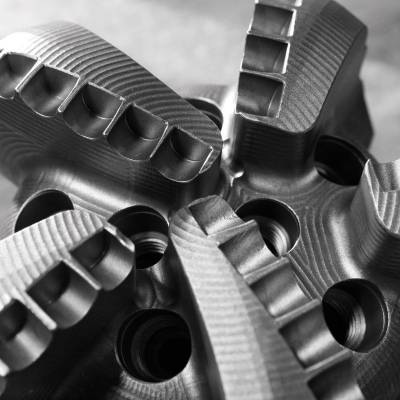
Masters in Petroleum Engineering
Become a world-class petroleum engineer, ready to take up roles in the upstream oil and gas industry. Join our accredited online MSc in Petroleum Engineering, designed in partnership with industry.
View MSc Petroleum EngineeringBuild your learning
We offer a range of specialist online engineering and technology courses you can use to build your skills.
Many carry credits you can build up into postgraduate qualifications, including Masters degrees:
Careers
This course will prepare you to progress within roles in the petroleum engineering sector.
Continuing Professional Development (CPD)
Your employer or professional institute may recognise this course for CPD hours. Talk to your employer or institute to find out more.

Free career support
Access our free careers service while you study.
- 1:1 appointments
- CV checks
- Interview prep
- Job opportunities
Choose the University of Aberdeen for part-time online learning

Flexible
Flexible hours and 24/7 access, so you can study when it suits you.

Learn anywhere
On smartphone, desktop and laptop, with no need for a student visa.

Over 525 years of excellence
Study with the fifth-oldest university in the English-speaking world, founded in 1495.
Entry requirements
Entry requirements
We welcome students from all over the world.
This course has no formal entry requirements. You do not need to provide proof of your qualifications.
But you do need to check the entry guidance above to understand the level of teaching delivered, to decide if this course is right for you.
If you do not have qualifications from the UK, check the equivalent teaching level for your country.
Visa requirements
You do not need a student visa to study online with us.
English language requirements
Teaching is delivered in English.
You do not have to provide proof of your English language skills to join this course. But we want to make sure that you can use English well enough to study successfully.
Recommended level of English
For this course, we recommend the following level of English language proficiency.
These are our Postgraduate Standard requirements, and these are minimum scores.
IELTS Academic, IELTS UKVI Academic, or IELTS Online (not IELTS Indicator or IELTS General Training)
- 6.5 overall
- 5.5 for listening, reading and speaking
- 6.0 for writing
TOEFL iBT or TOEFL iBT Home Edition
- 90 overall
- 17 for listening
- 18 for reading
- 20 for speaking
- 21 for writing
- TOEFL DI code is 0818
Cambridge English: B2 First, C1 Advanced, or C2 Proficiency
- 176 overall
- 162 for listening, reading and speaking
- 169 for writing
LanguageCert Academic / LanguageCert Academic SELT
- 70 overall
- 60 for listening, reading and speaking
- 65 for writing
Oxford ELLT Digital – English Language Level Test Online
- 7.0 overall
- 5.0 for listening, reading and speaking
- 6.0 for writing
PTE Academic (online test not accepted)
- 62 overall
- 59 for listening, reading, speaking and writing
Skills for English: SELT
- B2 pass with merit
Duolingo – tests taken from 1 July 2024 onward
- 120 overall
- 95 for listening, reading and speaking
- 105 for writing
University of Aberdeen English Pre-sessional Programme (PSE)
- Pass
- Valid for one year. Refresher can be offered if out of date
Pre-sessional academic English preparation programmes undertaken at other UK universities
- Pass at an equivalent of 6.5 (C1)
- B2 in all four skills
- Certification must be within one year prior to the start of your course
For full information about language requirements, see our English Language Requirements page.
You will need access to:
A computer (PC, laptop or Mac) with an up-to-date operating system
Most teaching materials are smartphone- and tablet-friendly. But we recommend a proper laptop or desktop for completing assignments comfortably.
Reliable internet access
We recommend:
- a wired connection
- a minimum download speed of 2 Mbps so you can take part fully in live sessions.
Speakers or headphones
- We recommend a headset with built-in microphone and earphones if you’re likely to study in an environment with background noise.
- A webcam is optional, but you may like to use one for some interactive sessions.
Software
We’ll give you access to Office365 applications. This means you can use online versions of Microsoft Word, Excel, PowerPoint and OneDrive and install these programs on up to five personal devices.
If your course requires specialist software, we’ll provide you with access to this and a licence that lasts throughout your studies.
See our detailed IT requirements for more information.
When you study with us, you can expect a first-class support structure so that you’re never alone in your studies.
But learning online does mean you have to motivate yourself and manage your own time.
Your most important commitment will be time – the time to work through, reflect on and understand your teaching materials.
Before you start a course that involves a high degree of independent study, we recommend looking at the time you will be able to devote to your studies each week:
- Be realistic
- Create a weekly schedule as a guide
If you have any questions about studying online, get in touch with our friendly team. We’re here to help.
Fee payment
Your course fee needs to be paid in full before you start your course.
We accept payment via Visa Debit, Visa Credit and Mastercard.
Ways to save
You may be able to get help funding this course via:
- discounts – if any discounts are available for this course, they’ll appear in the section below
- employer sponsorship – we accept full and partial fee payments from sponsors.
Find out more about funding options.
Student card
All our students are entitled to a University of Aberdeen student card. This gives you access to a range of student discounts around the city and online.
Learning resources
Access to all the essential books and resources you need are included in your tuition fee. They’ll be made available to you online and you do not have to buy your own copies.
We also provide optional recommended reading lists. Many of these resources are available electronically through our library, although purchases may be required if you wish to read the full list.
Printing
You may want to set aside a small budget for printing, depending on how you like to work.
This course has no formal entry requirements. You decide if it’s suitable for you.
The course is delivered at Masters level. At this level, you’d usually have at least:
- a 2:2 UK degree (or equivalent) in Petroleum Engineering, Chemical Engineering, or Civil Engineering, or
- relevant experience that supports this level of learning.
Reservoir engineering knowledge
This course assumes some knowledge of reservoir engineering. If you do not have this prior knowledge, we recommend taking our online Reservoir Engineering short course first.




